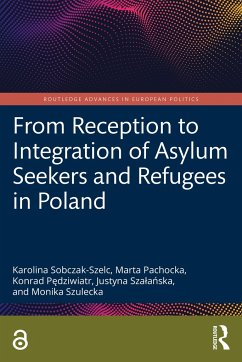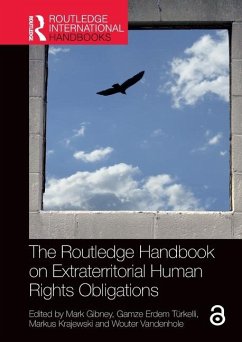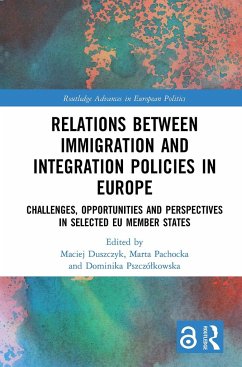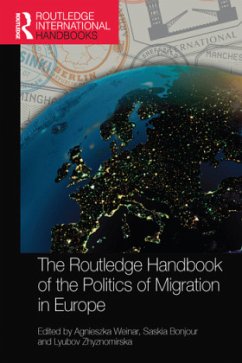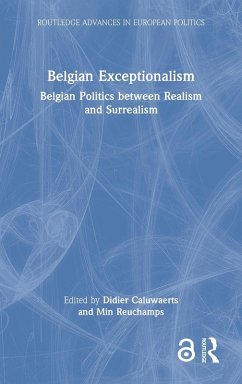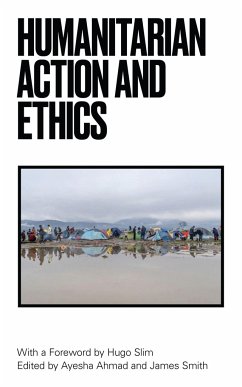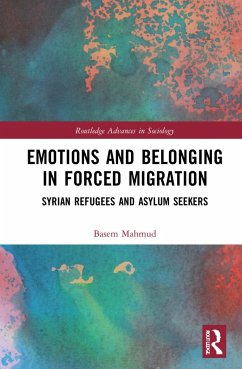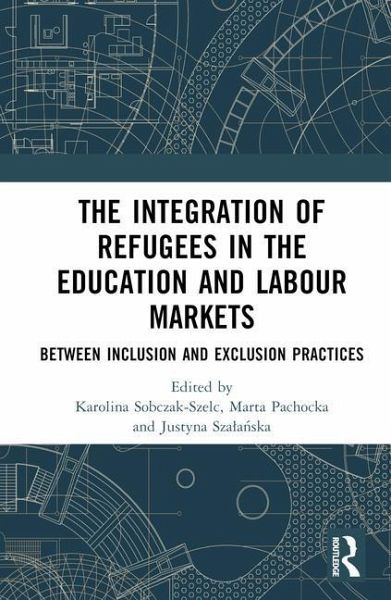
The Integration of Refugees in the Education and Labour Markets
Between Inclusion and Exclusion Practices
Herausgegeben: Sobczak-Szelc, Karolina; Pachocka, Marta; Szalanska, Justyna
Versandkostenfrei!
Versandfertig in 6-10 Tagen
154,99 €
inkl. MwSt.

PAYBACK Punkte
77 °P sammeln!
This book sheds light on the improvements and downfalls over time in two of the five indicators of refugee integration after the post-Arab Spring migration/refugee crisis, namely education and employment.Within the context of the need for a common policy response in the field of migration governance, it includes case studies from first-line immigration countries of the Mediterranean region. The book also reflects on the situation in Central Europe, Scandinavia, and Africa and considers the perspectives of different actors, including migration and integration governance stakeholders, NGOs, gove...
This book sheds light on the improvements and downfalls over time in two of the five indicators of refugee integration after the post-Arab Spring migration/refugee crisis, namely education and employment.
Within the context of the need for a common policy response in the field of migration governance, it includes case studies from first-line immigration countries of the Mediterranean region. The book also reflects on the situation in Central Europe, Scandinavia, and Africa and considers the perspectives of different actors, including migration and integration governance stakeholders, NGOs, governments, refugees, and others. Covering a wide geographical spectrum and a diverse spectrum of integration experiences and models, it reveals collaboration between different actors and how they operated simultaneously on regional, national, and international levels in order to achieve the inclusion of refugees in the host communities.
This book will be of key interest to scholars and students of migration studies, social policy, public policy, international relations, European studies, law, economics, and sociology.
Within the context of the need for a common policy response in the field of migration governance, it includes case studies from first-line immigration countries of the Mediterranean region. The book also reflects on the situation in Central Europe, Scandinavia, and Africa and considers the perspectives of different actors, including migration and integration governance stakeholders, NGOs, governments, refugees, and others. Covering a wide geographical spectrum and a diverse spectrum of integration experiences and models, it reveals collaboration between different actors and how they operated simultaneously on regional, national, and international levels in order to achieve the inclusion of refugees in the host communities.
This book will be of key interest to scholars and students of migration studies, social policy, public policy, international relations, European studies, law, economics, and sociology.





